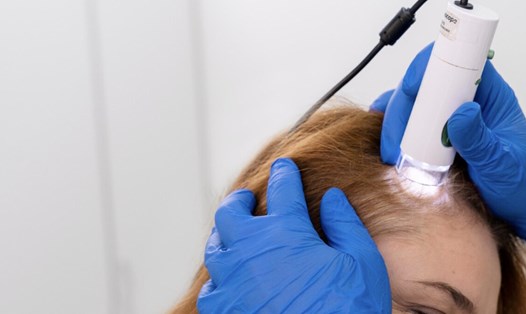Hair loss is often thought to be a result of genetics, hormonal changes, stress or poor diet. However, in some cases, it can be a manifestation of a more serious health problem, impaired kidney function.
The kidneys play an important role in the body: filtering toxins, regulating hormones and maintaining a balance of essential nutrients. When the kidneys are not working effectively, internal changes can manifest themselves on the outside, especially in the hair, skin and nails.
Why can hair loss be related to kidney disease?
According to Dr. Pravin Banodkar, dermatologist and co-founder of Skin beyond borders (Mumbai, India), hair follicles need oxygen-rich blood and nutrients for healthy growth. The kidneys are organs that help control essential minerals such as iron, zinc and vitamin D, all of which are necessary for hair growth. When kidney function is impaired, hair will easily become weak, dry and broken.
In addition, in chronic kidney disease (CKD), the amount of erythropoietin hormone is reduced, leading to red blood cell deficiency. As a result, blood and oxygen flow to the scalp is reduced, causing scattered hair loss or patch loss. Some kidney diseases can also cause an autoimmune reaction, attacking hair follicles, causing hair to thin.
Signs that hair loss may be related to the kidneys
singly hair loss is not enough to diagnose kidney disease. However, if hair loss is accompanied by the following symptoms, you should pay special attention:
Swelling in the face, arms or legs
Prolonged fatigue and exhaustion
Unusual urination (a lot, a little urination, foaming urine...)
Dry, itchy skin
Frequent bowel movements or nausea
If you experience multiple signs at the same time, see a doctor and get your kidney function checked early.
How to protect healthy hair and kidneys?
Dr. Banodkar recommends maintaining the following healthy habits to protect both kidney and hair health:
Drink enough water: 810 glasses a day to help the kidneys function effectively
Eat a balanced diet: Supplement foods rich in iron, zinc, biotin, omega-3 such as green leafy vegetables, eggs, fatty fish, nuts...
Limit excess salt and protein: Avoid putting pressure on the kidneys
Reduce alcohol and caffeine: Both can dehydrate and affect kidney function
Regular health check-ups: Especially if you have a family history of diabetes, high blood pressure or kidney disease
When to see a doctor?
If you notice sudden hair loss, unusual hair loss, especially accompanied by signs all over the body such as swelling, urinary changes, persistent fatigue, quickly see a medical professional.
Some simple blood tests such as creatinine or urea levels can help assess kidney function in a timely manner.











